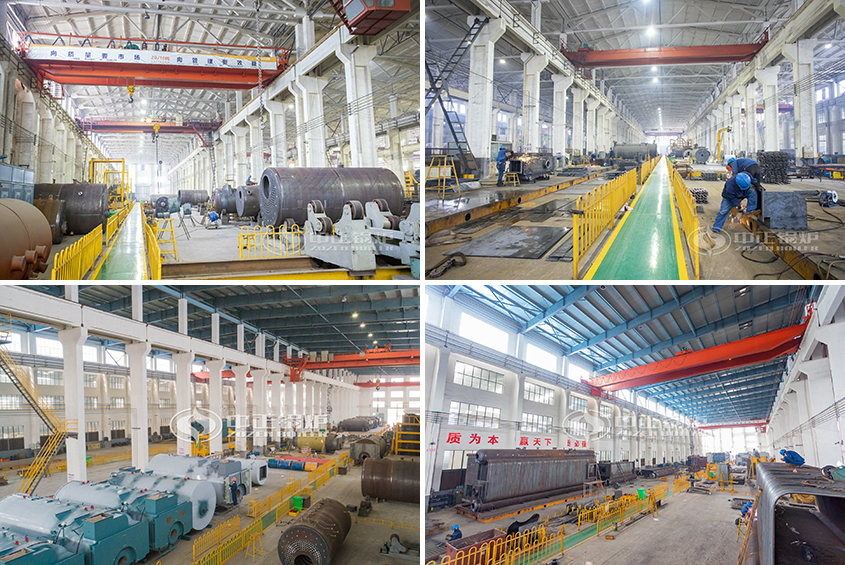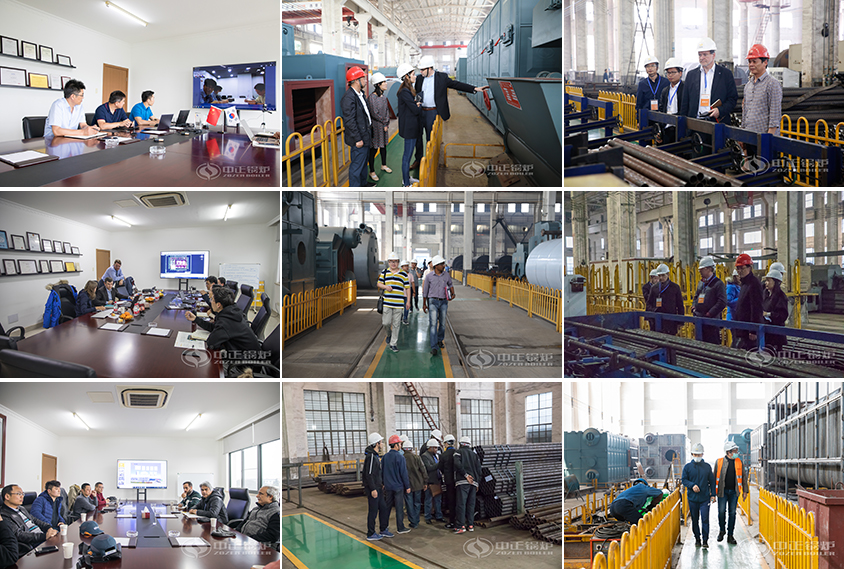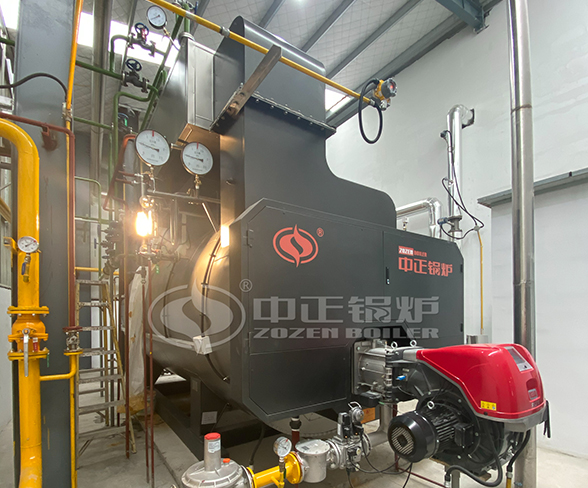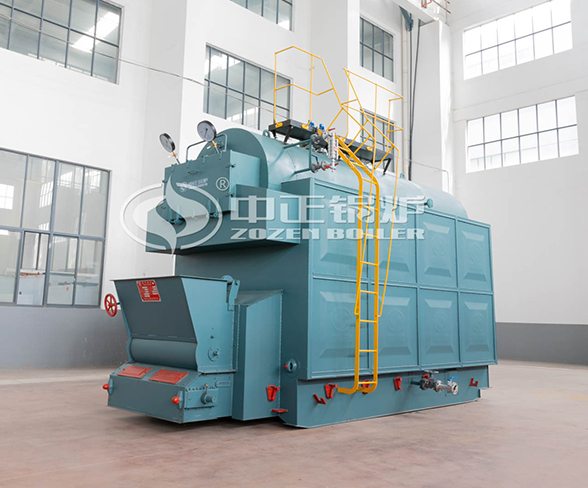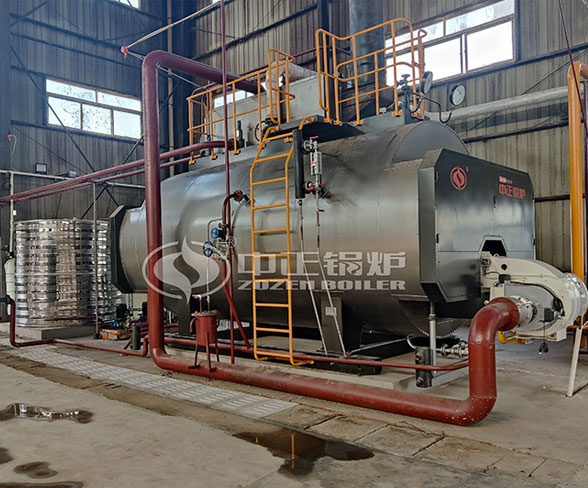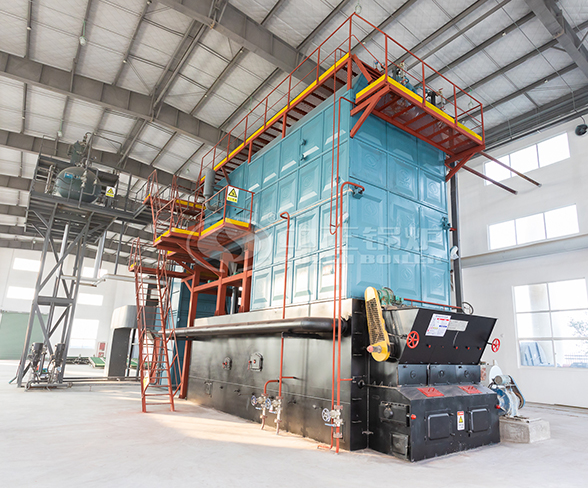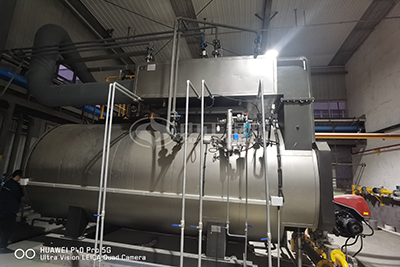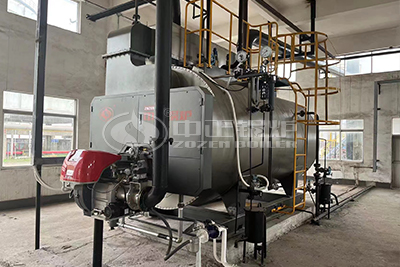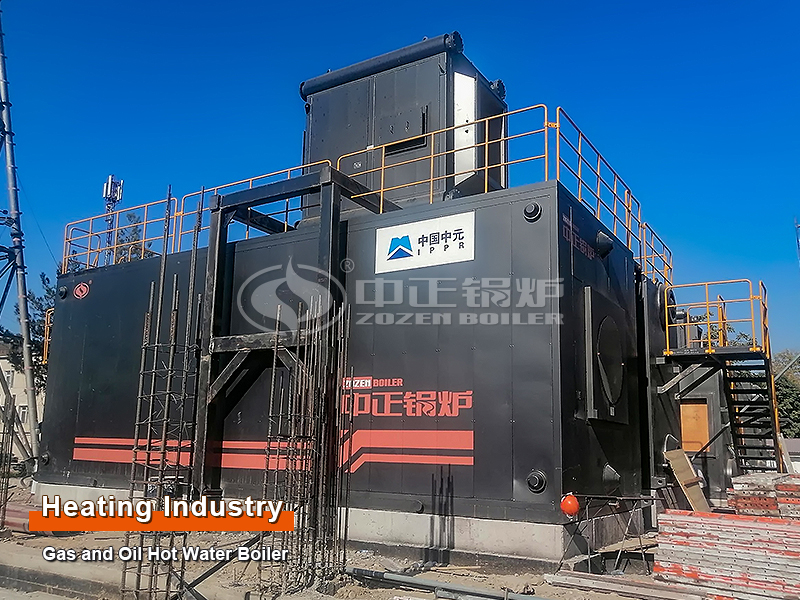Biomass boilers utilize organic materials, such as wood pellets, sawdust, or agricultural residues, as fuel to generate heat for heating or power generation. They are recognized as a clean and renewable alternative to traditional energy sources due to their reduced carbon emissions and sustainable nature.
Biomass boilers find application in various industries due to their ability to provide sustainable and efficient heat and power generation, like Heating, chemical, food, tobacco, textile, printing and dyeing, feed, pharmaceutical, building materials, brewing, rubber, hospitals.
Several key factors impact the overall biomass boiler cost:
Boiler Capacity and Size:
The capacity and size play a significant role in determining upfront biomass boiler cost. Larger capacity boilers require more materials, increased manufacturing complexity, and higher installation costs. The size of the boiler also affects the space required for installation and the associated infrastructure, such as fuel storage and handling systems. It’s important to carefully assess the heating or power generation needs to select an appropriately sized boiler that balances cost and efficiency.
Design and Technology:
The design and technological features can impact biomass boiler cost. Advanced features such as automated fuel feeding systems, combustion control mechanisms, and emission control technologies contribute to increased manufacturing and installation costs. However, these features often enhance the boiler’s overall performance, efficiency, and environmental sustainability. It is important to evaluate the specific requirements and priorities to determine the optimal balance between cost and technological advancements.
Fuel Availability and Quality:
The availability and quality of biomass fuel sources directly influence the cost stability of biomass boilers. Reliable access to sustainable biomass fuels, such as wood pellets or agricultural residues, ensures a consistent supply and potentially lower fuel costs. The proximity to biomass fuel sources and the existence of a well-established supply chain can also impact the overall biomass boiler cost. It is essential to assess the local biomass availability and evaluate the long-term feasibility and cost-effectiveness of fuel procurement.
Maintenance and Operational Costs:
Considering the long-term maintenance and operational costs is crucial for an accurate assessment of biomass boiler cost. Regular maintenance, including cleaning and inspection, ensures optimal performance and prolongs the boiler’s lifespan. Additionally, fuel expenses should be considered, as different biomass fuels may vary in cost and availability. Efficient fuel management systems, such as automated fuel feeding and ash removal mechanisms, can help reduce operational costs. It is advisable to consult with manufacturers or experienced professionals to estimate the maintenance and operational costs accurately.
ZOZEN Boiler is a well-established Chinese industrial boiler manufacturer renowned for the expertise in boiler design, production, and comprehensive after-sales services. The commitment to quality and innovation has made us a trusted name in the industry.
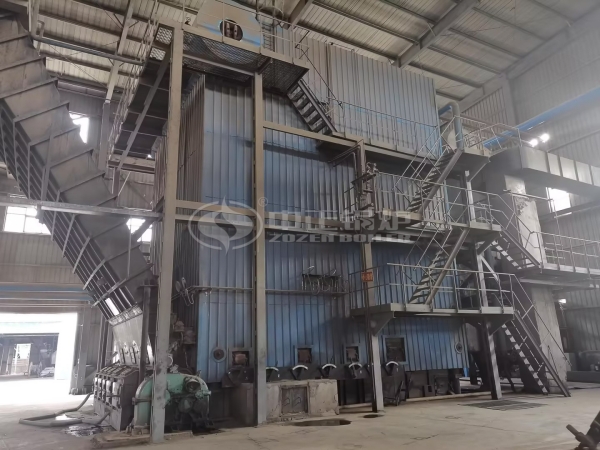
ZOZEN 25-ton DZL series biomass boiler
The DZL series third-generation biomass boiler is a water tube boiler composed of three drums. It is independently developed by ZOZEN Boiler and has independent intellectual property rights. The boiler adopts a modular structure, consisting of two large components, the upper and lower parts.
The details, design and technological features of DZL series boiler:
Parameters: Thermal capacity: 15-40 t/h
Working pressure: 1.25 Mpa / 1.6 Mpa / 2.5 Mpa;
Outlet temperature: 194℃ / 204℃ / 225℃
Non-Clogging Design: Patented technology ensures efficient combustion and prevents ash accumulation, enhancing operational reliability.
Chain Grate and Independent Air Chamber: The chain grate system enables thorough fuel combustion, while the independent air chamber design optimizes combustion conditions.
Water-Cooled Wall Tubes: The furnace incorporates densely arranged water-cooled wall tubes, resulting in a significantly increased radiation area and achieving a high thermal efficiency of up to 87.5%.
Environmental Benefits: Biomass boilers contribute to reduced carbon emissions, aligning with sustainability goals.
ZOZEN biomass boiler not only delivers exceptional performance but also contributes to biomass boiler cost savings and environmental preservation. As the world shifts towards cleaner energy sources, biomass boilers present a compelling option for individuals and businesses alike, allowing for a greener future without compromising cost-efficiency.

